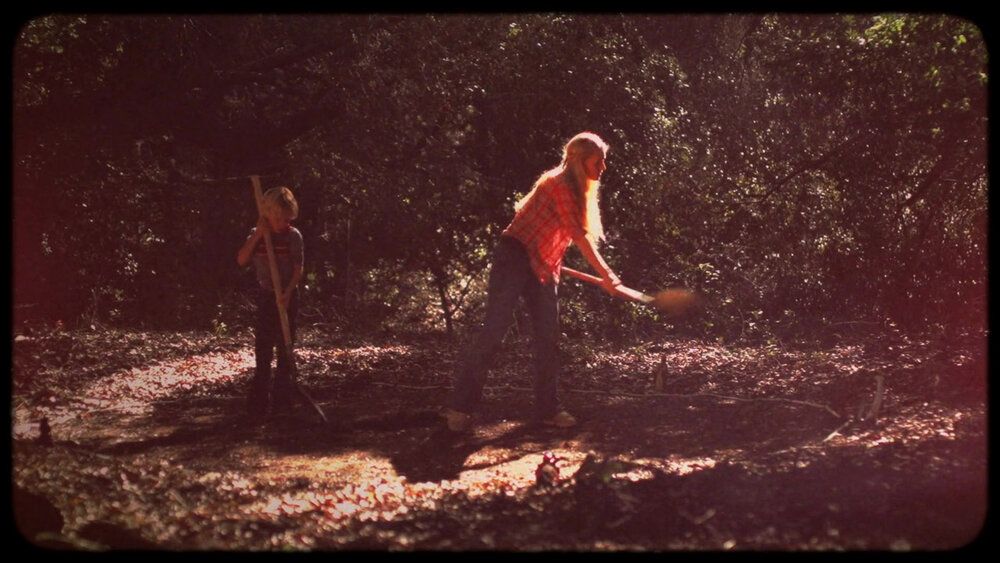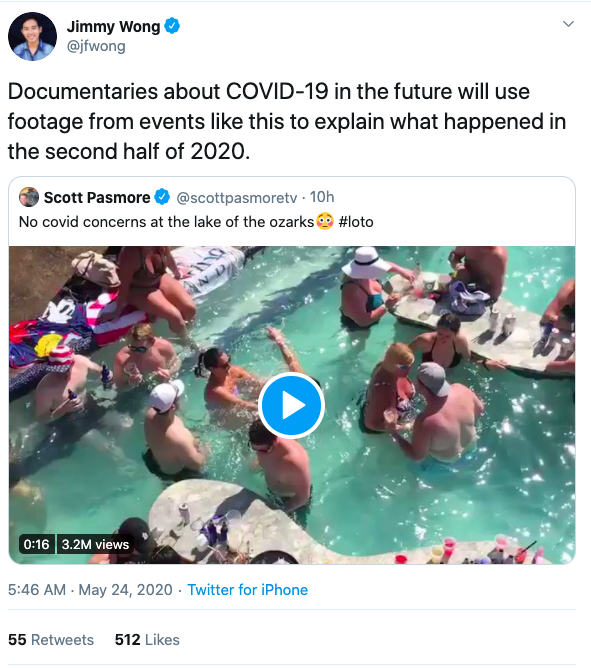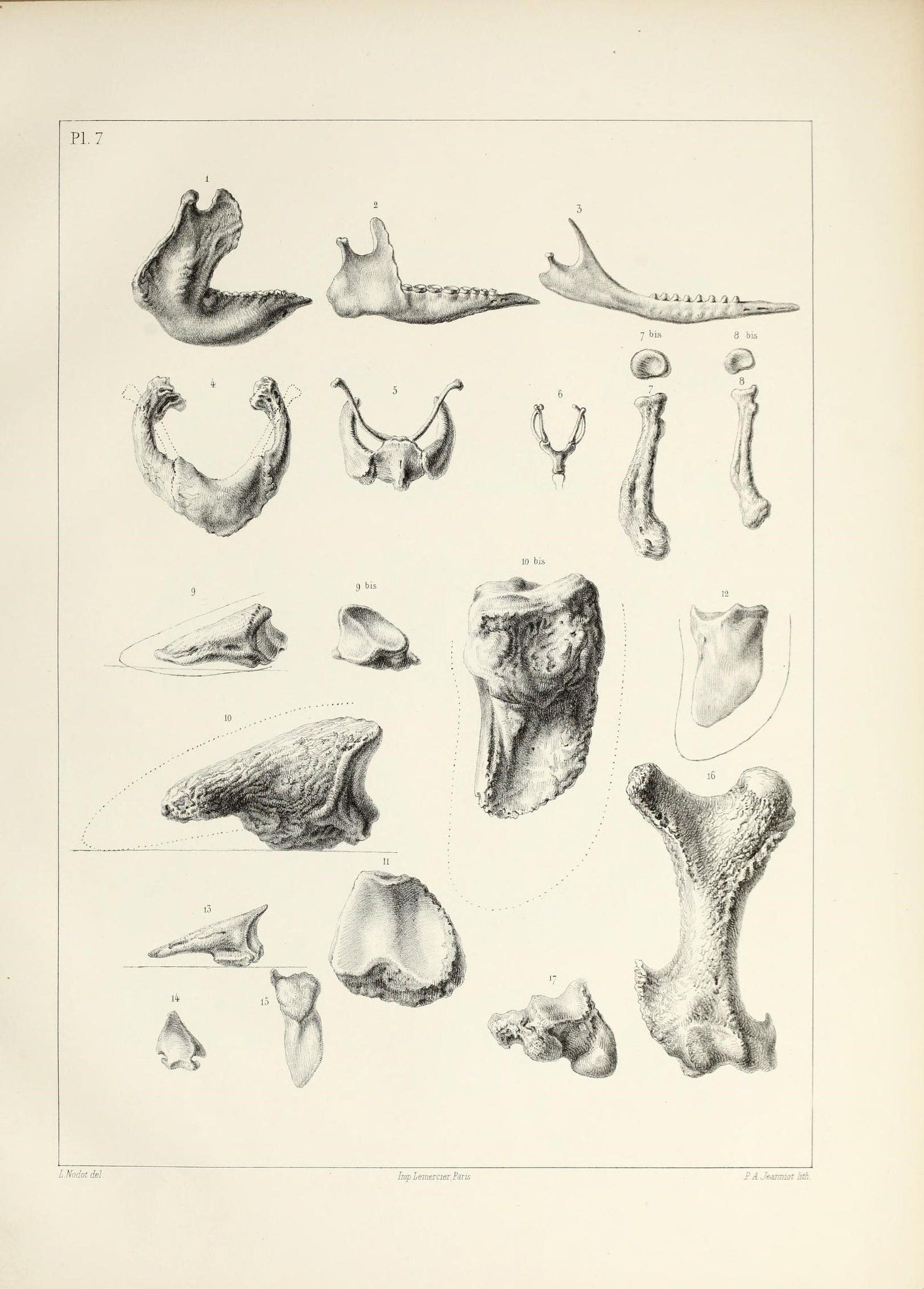Choose your own reality
The history books are going to have our asses over this!

In today’s Hell World we have a piece from Dig Boston and the Boston Institute for Nonprofit Journalism due to we occasionally trade pieces back and forth. You can read more of those here. This one is on the challenges faced by people awaiting trial and the lawyers defending them in remote “Zoom court” during the pandemic.
First some other stuff. As always thank you to everyone who has chipped in to support this newsletter it’s greatly appreciated. If you haven’t yet and you can please do so to make sure you get every edition of Hell World in your inbox two to four times a week depending on how bad my brain is feeling at any given time.
America is open for business and back to doing what we do best baby and if you need evidence of that look no further than this shooting at a naval base in Texas on Wednesday or this shooting at a mall in Arizona on Thursday. Mercifully no one was killed in either attack I guess our mass shooters are a little rusty like the rest of us but don’t worry because the big boys in the government got up to some killing of their own by conducting the first execution of the pandemic. Nature is healing itself.
Walter Barton was put to death on Tuesday for the 1991 killing of a woman named Gladys Kuehler in Ozark, Missouri a crime for which he was tried five times over the decades and for which there was as there often is considerable question about whether or not he actually did.
“Mr. Barton has maintained his innocence since day one; because the case against Mr. Barton was so weak, it took the state five tries to actually convict him and sentence him to death, ‘improv[ing its case] time after time because they find more snitches’ – and, even then Missouri’s highest court affirmed his conviction only by the narrowest of margins, with multiple justices strongly dissenting,” the Innocence Project wrote in a request for an independent board to review his conviction.
“His conviction rests entirely upon evidence now known to be two of the leading causes of wrongful conviction: incentivized jailhouse informant testimony and blood spatter evidence, an infamously unreliable forensic ‘science.’ Today, there is new, reliable evidence, casting even more doubt on his already troubling conviction. Mr. Barton’s case is marred by prosecutorial misconduct, as well as ineffective assistance of counsel, from beginning to end.”
“Mr. Barton’s case has the hallmarks of a wrongful conviction,” they wrote.
I guess they had to take extra precautions for the witnesses to the execution on account of the pandemic. Karen Pojmann a spokeswoman for the Missouri Department of Corrections said they “planned to divide witnesses within three rooms” and that “everyone would be given a temperature check before entering and provided face coverings and hand sanitizer.” So that’s good. You wouldn’t want anyone getting sick at the execution. You wouldn’t want them taking anything home with them that they couldn’t recover from.
Not too far away from there over the weekend as the Covid death toll odometer inched over 100,000 Missouri was also open for business in its own way with hundreds of revelers packed into a crowded pool bar on the Lake of the Ozarks perhaps silently and invisibly executing each other via partying.
Have you ever been to a pool bar like that they always seem like they’re designed by Dante just layers and layers of despair. Speaking of which I watched this movie over the weekend called Antrum about a brother and sister who try to find their dead dog by digging a hole to hell. At the beginning the boy asks his mother if Maxine the dog was in Heaven now and the mother says “No. Because he was bad.”

It’s not just in places like Missouri that people are itching to get back to business there was a shitty little stunt protest in Brooklyn last week held by people who think getting to the salon is more important than other human lives.
“My fingernails are breaking, I’ve got hangnails, I’ve been getting my nails done for 14 years … I’m very much into yoga, I can’t go to my Bikram yoga studios, I can’t go get my eyelashes done, I can’t go and socialize with the people that are my friends,” a woman from Mississippi named Hillary Angel Barq told Brooklyn Paper. “It’s led me to depression, it’s made me not feel sexual — I mean it’s awful.”
It does sound awful not going to argue with her there.
Anyway I don’t care about that I just wanted an excuse to share this with you the best sentence I’ve read in all of Covid and maybe my life from a story about the protest.
“Scurlock, a former candidate for mayor in New Orleans and heir to an inflatable bounce house fortune, was arrested in 2017 for allegedly masturbating in the backseat of an Uber in California, for which he pled no contest in 2018, according to a report in the Times-Picayune.”
It’s important to keep in mind that the loudest voices when it comes to reopening and getting everyone back to work are usually people like that people who are the heirs to bounce house fortunes and not the actual workers who will be putting their lives at risk at the bounce house factory.
I don’t know why people aren’t scared to get into a pool with a hundred strangers right now maybe they just love the thrill of gambling. I can personally attest to the high of risking like $50 on a hand of blackjack so can you imagine how much more exciting it must be when you’re risking your whole entire life and the lives of everyone around you?
Speaking of gambling here’s a very normal scene from the year two thousand and twenty from Foxwoods casino.
“Your body temperature is normal” citizen. Please proceed to the money losing station.
Or maybe a lot of people aren’t scared to mingle in the piss and beer water stew literally and metaphorically speaking because our brains have been softened up by too much misinformation just a constant pummeling to the dome every day for years by the news media trustworthy and otherwise. A recent poll by Yahoo News/YouGov for example found that 44% of Republicans believe that “Bill Gates is plotting to use a mass COVID-19 vaccination campaign as a pretext to implant microchips in billions of people and monitor their movements.” Democrats are much smarter of course only 19% of them believe that which is… uh 1 in 5 Democrats. Not bad!
I don’t know why so many people feel the need to divert their very natural and instinctive disdain for the ungodly abomination the billionaire like Gates and George Soros or whoever into believing in made up conspiracies when they could very simply despise them for being billionaires in the first place and doing the actual real life things that billionaires do.
More from the poll:
The new Yahoo News/YouGov poll found that this “choose your own reality” effect is distorting perceptions of nearly every aspect of the pandemic, from reopening to vaccination to the official death toll. A broad majority of the public is either “very” (56 percent) or “somewhat” concerned (30 percent) about “false or misleading information being communicated about coronavirus.” That sentiment, at least, is not partisan: More than 80 percent of Democrats, Republicans and independents agree.
Yet blame for these concerns varies greatly by political affiliation. When Democrats are asked to select the top source of false or misleading information about the coronavirus, 56 percent pick the Trump administration; that number rises to 69 percent among Hillary Clinton voters. Republicans, however, point to the mainstream media (54 percent) as the primary culprit; 61 percent of Trump voters say likewise.
The result, in many cases, is two different sets of “facts” — only one of which resembles the truth.
They also found that only half of Americans say they intend to be vaccinated “if and when a coronavirus vaccine becomes available.” 23% said they will not. Get in the fucking pool baby.

Is 100,000 dead in a couple months a lot? Who is to say I couldn’t tell if that’s a lot of dead people or not but then the New York Times listed a bunch of the names of the dead on their cover this weekend. I got a bug up my ass about it on Twitter yesterday as soon as I saw it because I knew all the newspaper people were going to be very excited about a newspaper doing something outside of the norm of what newspapers typically do and also because I’m an alcoholic dickhead who lashes out at others to distract myself from crippling self loathing lol.
But then in the midst of it I figured out something else I wanted to be mad about more which is the sign of true posting talent being able to switch gears on the fly like that.
The other thing is the pervasive concern from many usually libs for how the present day will look in history books. It’s something you’ve likely seen said a thousand times in the Trump era about how this or that god awful thing he did or said will be written about years from now and it’s just such a strange way of thinking about the world to me.
This type of shit is even more perverse when it’s someone with actual power like Schiff saying it. It’s a form of punting responsibility for real problems happening right now to some later date at which point the future moon historians or whatever will arrive and right the wrongs of our present with their scathing appraisal of how terrible Trump was.
Not only is it a type of cowardice — “outsourcing this to the future when people will care” as a pal on Twitter said — it doesn’t even happen to be true. The history books do not in fact tell us the real unvarnished dirt on what our leaders and so on were up to that’s like the one main thing we know about history books that they’re fucked up and biased and written from the perspective of the victors. On top of that thinking about this particular pandemic in terms of what will be said about it in the history books is just real fucking weird because did we even learn about the Spanish flu in the history books we were meant to have read? I certainly don’t remember reading about it in school.
As I mentioned in here the other day people basically memory-holed that whole thing almost immediately.
Here’s the bit in case you forgot or didn’t see it:
I just read something H. L. Mencken wrote in 1956 about the Spanish flu.
“The influenza epidemic of 1919, though it had an enormous mortality in the United States and was, in fact, the worst epidemic since the Middle Ages, is seldom mentioned, and most Americans have apparently forgotten it. This is not surprising. The human mind always tries to expunge the intolerable from memory, just as it tries to conceal it while current.”

That film I mentioned Antrum comes with a sort of Blair Witch/The Ring style meta framing which I found pretty corny. The idea is that the actual “film” within the film is so horrifying that anyone who has ever seen it dies and they have “experts” and shit talking about it in a fake documentary. I sort of wish they had skipped that and just released it as is because it’s pretty unsettling and gets more so with each successive layer of Hell the kids dig themselves into. At a certain point they realize that they’ve fucked up and might not be able to turn back at all.
Ok here’s the piece from Dig Boston. Bye bye.

Remote Justice: On Trial In Zoom Court During the Covid-19 Pandemic
by Jean Trounstine
On May 6, I sat in on Zoom court, as such proceedings are often labeled after the technology that facilitates online trials. This was a federal hearing on a motion for the temporary release of 43-three-year old Johanny Mejia-Nunez, who is detained at Plymouth County jail. Although the defendant had been refused bail before, the appeal cited that he should be able to wait for his trial at home since he is at risk of contracting coronavirus.
Since the pandemic hit, many people are being tried over the internet, in courts where attorneys and personnel appear in suits from their homes, while judges are at the courthouse or seated in home offices with books in the background. If the defendant is held behind bars, they often appear on screen unless video is not working at the facility, in which case they call in.
“We are all improvising to some extent,” Ben Evans, an attorney on the South Coast, wrote in an email. “In Fall River District Court, arraignments happen via telephone conference. In Attleboro District Court, they happen via video conference.”
As far as I could ascertain, these decisions are as much due to technological capabilities as to philosophy. Suffolk County District Attorney Rachael Rollins, in a Zoom interview, told me that the “gaps in the system” have been very confusing for the public. “It’s 2020, “Rollins said, “and we don’t have a live stream in our municipal and district courts.”
Each Massachusetts court, be it District, Superior, Appeals, or the Supreme Judicial Court, has its own remote procedures. A form I filled out for the federal hearing assured me that “Access to all hearings are available to the media and public.” (This is unlike Juvenile Court, which has confidential proceedings.) However, during one telephonic court call, the proceedings began before the phone line was working for the public to call in and listen.
In federal Zoom court, defendant Mejia-Nunez, speaking from a nondescript room, appeared on-screen in the familiar checkerboard, his black curly hair and brown skin accentuated by a white mask. Of all the people on the video conference, the defendant was the only one in a mask, raising questions. Is he someone who is prone to sickness?Is Mejia-Nunez contagious? Should that impact a decision about his release in some way? Most importantly, is it fair for only one person in a court proceeding to be wearing a mask?
Other screens included: Chief Justice F. Dennis Saylor IV, seated at the Moakley Courthouse in Boston; Majia-Nunez’s two lawyers, Murat Erkhan and Christopher Bosso, appearing from separate offices, and texting back and forth since they could not talk freely; the government prosecutor, Corey Steinberg, who was difficult to see; Gabriel Hadad, translator for Spanish-speaking Majia-Nunez; and other personnel, all in their own Zoom boxes. On the phone were Majia-Nunez’s loved ones, each in separate squares. All together there were 17 people.
Erkhan, who was disconnected three times in a previous Zoom court appearance, told me after the hearing that it was difficult to do his job without his client sitting next to him. At one point during the proceedings, Majia-Nunez asked to speak directly to the judge. Erkhan said, “Often I can say, ‘Sit up straight,’ or ‘Don’t say this to the judge,’ and ‘We can do that without drawing the court’s attention to it.’ In this case, I didn’t hold my breath when my client spoke directly to the judge.”
It was hard to hear the judge as well as the defendant. When Majia-Nunez spoke, there was a lag, then a translation, then an answer in English. After it was over, his appeal was denied. Randy Goia, deputy chief counsel of the Public Defender Division of the Committee for Public Counsel Services (CPCS), said in an interview, “Remote justice is a really poor substitute for the real thing. When a judge can’t look at a person and see their eyes, can’t really observe facial expressions and body language, it is hard for a judge to make a fair and just decision.”
Problems foreshadowed
Even before coronavirus closed the courts, remote justice was creeping into legal proceedings in Massachusetts, and many lawyers were objecting. Technical glitches are annoying, and in the four remote courts I attended, disruptions ranged from dropped calls or “My Zoom isn’t working” to scratchy sound quality.
Prisoners’ Legal Services staff attorney Bonnie Tenneriello describes a more serious problem. Telephonic clients, she said in an interview, seem like “disembodied voices.” Tenneriello is quick to point out that no one can be faulted, but a survey by CPCS and Suffolk University in 2017 found that out of 225 responding attorneys, more than 85% said that videoconferencing dehumanizes the defendant.
Merritt Schnipper, a criminal defense attorney who focuses on appeals, explained: “One of our jobs is to help judges see clients as people and how they got caught up in the court system. This is significantly more difficult to do without a person standing before the court.”
More than 70% of attorneys responding to the CPCS-Suffolk survey felt that there are inadequate provisions during remote hearings to protect attorney-client confidentiality. “I think it’s impossible to advocate for someone over the telephone,” criminal defense attorney Makis Anzoulatos said in an interview. “Anything you say or your client says is heard by everyone.”
More than 55% of respondents said remote proceedings impede communication. As attorney Ben Evans wrote in an email response to questions for this article, “Does a Mayan immigrant from Guatemala who speaks some Spanish have a chance of understanding court proceedings via video conference when the court interpreter is in the courtroom and she is not?”
In January, District Court Chief Justice Paul C. Dawley “touted the benefits” of virtual hearings in speaking with Kris Olson of Massachusetts Lawyers Weekly. He said expanding videoconferencing would reduce crowding at courthouses, increase security (no chance for bringing contraband to courthouses), and reduce costs (transportation of prisoners and detainees). However, in the same article, Suffolk University professor Eric T. Bellone, who collaborated with CPCS to produce the report from the survey, pointed to the human costs. In Cook County, Illinois, “The average bond amount for the offenses that shifted to televised hearings increased by an average of 51%, and there were increases of between 54 and 90% for six major felonies. … By comparison, defendants who had appeared in court experienced a negligible increase in bond amounts.”
In her April 22 response to a lawsuit pursuing decarceration during the pandemic, District Attorney Rachael Rollins warned against constitutional rights being violated by video proceedings. Rollins cited cases involving rape victims having the right to see their accuser and family members not having access to proceedings, writing, “Now, due to the trial court’s inability or refusal to adapt or evolve technologically, our victims and family members of victims, the public, and defendants are being excluded from the process.”
“Crime doesn’t stop for a global pandemic,” the Suffolk DA told me in an interview.
There is also a significant digital divide. According to BroadbandNow, there are “147,000 people in Massachusetts without access to a wired connection capable of 25mbps download speeds,” and another “64,000 people without wired internet providers available where they live.” Douglass Keith of the Brennan Center for Justice at NYU School of Law said, “Those with lower-quality internet are going to be the ones who are more likely to have interruptions in their audio or in their video feed, which, of course, could impact how they’re viewed by the judge or the jury.” It could also mean a member of someone’s family cannot gain access to a hearing.
Virtual juries
As of May 18, court officials in Texas decided to move forward with the nation’s first jury trial on a virtual platform. According to Reuters, “Lawyers in an insurance dispute in Collin County District Court on Monday will present their case by videoconference. The one-day trial, which is available on YouTube is a so-called “summary jury trial, in which jurors hear a condensed version of a case and deliver a non-binding verdict.”
Jurors were selected virtually, deliberated through Zoom, and gave a verdict, reported NBC in Dallas.
In Massachusetts, the chief justices of the Supreme Judicial Court, the Appeals Court, and the Trial Court wrote to the Massachusetts Bar Association leaders and members of the bar, “The challenges of conducting jury trials with social distancing during a pandemic are formidable, and will require us to reimagine how juries are empaneled, where they will sit during trial, and where they will deliberate so that jurors can both be safe and feel safe.”
In my interview with DA Rollins, she said that she has begun thinking about how to empanel grand juries in Suffolk County (23 people who decide if an indictment should issue so that the case can go advance to trial in the Superior Court). “We don’t want [survivors of crime] to think we aren’t moving forward with respect to the things that have happened to them,” she said. Rollins has proposed a way to do this in person to some extent, by keeping people in separate rooms on separate floors, with each person six feet apart from another, everyone with personal protective equipment and access to computers and big screens.“Then we only have one assistant district attorney and one witness in the courthouse at a time,” Rollins added.
Meanwhile, according to theNew Jersey Law Journal, judiciaries there announced pilot programs to hold virtual grand jury proceedings via Zoom in Bergen and Mercer counties.
Nevertheless, criminal defense attorneys like Makis Anzoulatos, who is a member of the National Lawyers Guild, said the reactions of their clients to news about the courts closing have been full of “helplessness, desperation, and frustration.”
“We can talk all day long [about] whether there’s a better way to do it,” Anzoulatos said, “but if you’re sitting in jail, you want your day in court.”
